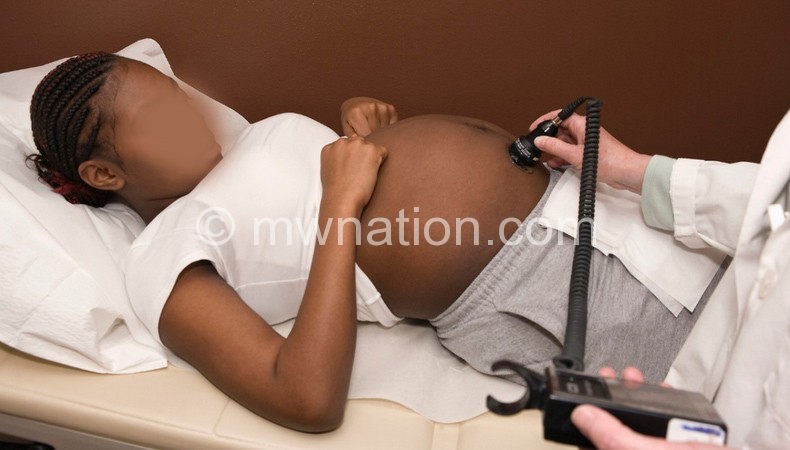106 000 teens get pregnant every year, 34 000 more teens get HIV
Poor or low access to contraceptives is resulting in about 106 000 teenage girls getting unwanted pregnancies in Malawi every year, a situation that has worried reproductive health organisations.
Population Reference Bureau (PRB) country coordinator Sandra Mapemba said the trend is also contributing to high HIV prevalence among the youth, with 34 000 new HIV infections recorded in 2013, 7 400 of them among children aged less than 14.

Mapemba was speaking in Mzuzu on Monday at a consultative meeting where she was a lead consultant in the development of a five-year Youth Friendly Health Services (YFHS) Strategy by the Ministry of Health (MoH) in conjunction with Health Policy Project (HPP).
With more little girls giving birth while as young as 14 years old, the result could only be high population growth rates that shrink the family bread and national cake, thereby exacerbating poverty in a country where, already, one in two people survive on less than a dollar per day (around K430 at present exchange rates).
It also leaves the young mothers with health complications associated with child bearing at tender ages and, for some, HIV and Aids—thereby painting a bleak future for the girl child and the generation they are bringing to life.
Quoting the Malawi Demographic and Health Survey of 2010, Mapemba said: “Some youths have had sex by age 10 or 15 and that 106 000 girls get pregnant every year, with only 20 percent [involved in] consistent condom use.
“So, the strategy is important in addressing the sexual reproductive health needs of young people so that we build their capacity to develop the country later in their lives.
“We are looking at comprehensive sex education because the information they have is either mixed or not complete. We also want quality services and youth involvement.”
MoH reproductive health officer Hans Katengeza said the strategy seeks to address challenges the youth face in accessing health services in hospitals.
He said a survey they conducted last year found that youths lack access to contraceptives and that public facilities are a main source of information for the youth.
HPP is leading the development of the strategy with funding from the United States Agency International Development (Usaid).
HPP youth engagement adviser Barwani Msiska said the development of the strategy will go through various stages whereby interested stakeholders will be given an opportunity for input.
She said the strategy will be ready by June this year.
Reacting to the rise in teenage pregnancies, Blantyre-based Pakachere Institute for Health and Development Communication executive director Symon Sikwese said the strategy will only be meaningful if, during its implementation, it addresses existing barriers in accessing health services.
Speaking in an interview yesterday, Sikwese said issues concerning strategies have been discussed several times, but challenges still remain on the ground.
He said: “For example, health workers continue taking the role of parents in judging the youth seeking contraceptives instead of assuming the role of a health worker to assist them.”
Sikwese said the strategy should also work on harmonising the country’s conflicting policies.
“[For example], the Ministry of Health seeks to increase access of contraceptives to young people, but the Ministry of Education prohibits access of such services within or around school premises,” he said.
Sikwese said most of the cultures in the country promote abstinence among young people when researches indicate that the youth have early sexual debut.
“The strategy should be implemented in such a way that it will give young people choices whether to abstain or seek for contraceptives,” he suggested.
In 2012, then vice-president Khumbo Kachali told a London summit on family planning that Malawi is committed to increasing access to contraceptives among youths by 2020.
But according to Sikwese, “there is no equitable access to contraceptives among young people, including adults. Those in rural and hard-to-reach areas are affected even more because clinics do not have suppliers.”
Population Service International (PSI) country representative Sellah Gibson welcomed the strategy, saying it will ease their job in reaching out to the youth.
The Ministry of Education, Science and Technology’s Education Management Information System (Emis) Report indicates that six out of 104 learners drop out of primary school in a year due to pregnancy and early marriages.





